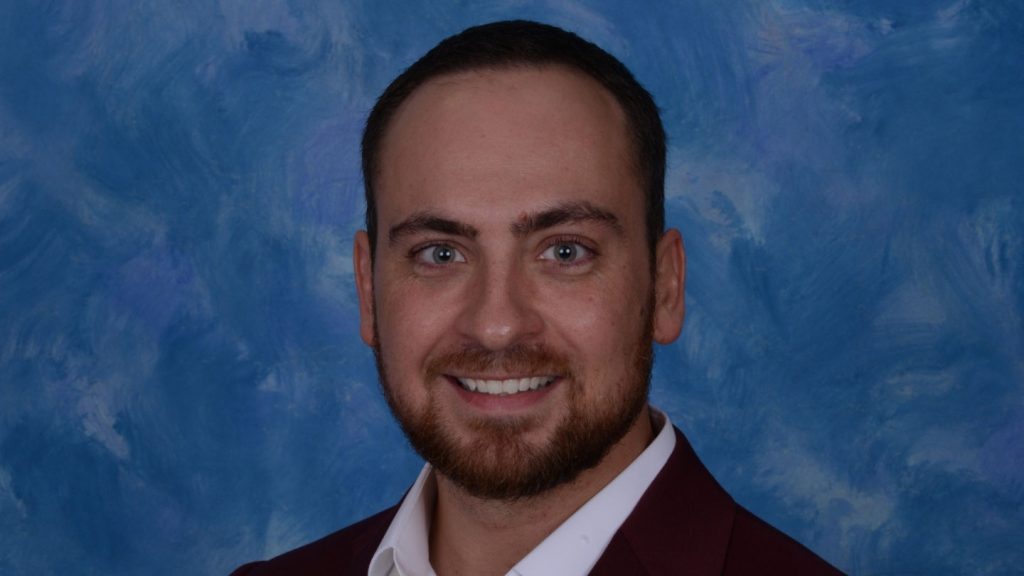
Jacob Saling, PharmD
Pharmacy Operations Manager at Ascension Saint Thomas Rutherford
What specific factors or experiences motivated you to select the UTHSC Community-Based Pharmacy Residency Program as your preferred pathway?
My choice was admittedly biased, but for good reason. Having worked for Kroger Health throughout pharmacy school, I was given many great leadership opportunities, and this residency felt like a natural extension of that work. I believed in the company’s mission. As a UT Health Science Center (UTHSC) pharmacy graduate, I also understood the weight and history the institution carries. It truly felt like the next step: to continue my journey with both Kroger and UTHSC.
To me, the deciding factor was the people. I already knew the preceptors on both the Kroger and UTHSC sides. These were mentors I genuinely wanted to learn from—to “steal like an artist”. While I enjoyed the retail side of Kroger Health, I saw this residency as a launchpad for any future path. I knew former residents had pursued ambulatory care PGY2s, and the resident right before me had transitioned into academia. The program’s diverse experiences in clinics, retail, business, specialty, leadership, and academia meant it could “flex” with me. I didn’t expect my path to lead to hospital pharmacy, but the leadership skills I gained have been invaluable in that world.
Can you share the most impactful or transformative experience you had during your residency year?
The most transformative experiences were centered on leadership growth and program development. My research with Dr. Ken Hohmeier on the implementation of Technician Product Verification (TPV) was pivotal. Being on the ground floor of rolling out a program across six different practice sites for a nationwide company gave me a significant advantage in project management. The lessons from that experience have been directly applicable to my PGY2 projects and my role as a hospital Operations Manager; in fact, I have since implemented TPV in two different hospitals. In meetings for new projects, I still find myself mentally running through the checklists from my PGY1. I learned to anticipate challenges and establish clear markers for success, skills that are now a large part of my daily work. This residency provided an incredible foundation to build upon.
Dr. Hohmeier led weekly leadership development meetings that have shaped my approach to management ever since. I re-read Leadership and Self-Deception annually, and it offers new lessons each time based on my current station in life. Formal leadership development is rare; most of the time, you only recognize a mistake after it’s been made. Having a safe space to discuss management principles and work through challenges was an invaluable opportunity that has impacted my growth as a leader.
In what ways has participation in the UTHSC residency program contributed to your personal and professional development, and how has it helped you move toward your long-term career aspirations?
My long-term career aspirations have evolved significantly since my residency. Although I didn’t initially intend to pursue a PGY2 in Health System Pharmacy Administration and Leadership, my community-based PGY1 prepared me exceptionally well for it, and I successfully matched with Jackson Health in Miami.
A crucial lesson from residency, one that isn’t always advertised, is time management. Juggling longitudinal research, teaching commitments, journal clubs, and unexpected assignments is a core challenge. During my PGY1 year, I was simultaneously helping implement Technician Product Verification from Nashville to Knoxville (checking in weekly with six sites) while also writing my manuscript, teaching classes at UTHSC, leading a diabetes management program, and meeting my staffing allocation. I learned early on to distinguish between what was fixed on my calendar and what was flexible. This ability to quickly triage tasks and manage my time was invaluable at Jackson, one of the largest hospitals in the country. The UTHSC and Kroger Health PGY1 provided a solid structure of core experiences while also offering the flexibility to grow in the areas that interested me most.
What important insights or advice would you offer to prospective residents considering the UTHSC Community-Based Pharmacy Residency Program to help them make an informed decision?
My advice is to recognize that residency is a profound commitment, and you become a reflection of those you work with. You will see your preceptors more than your own family, so it’s vital to choose a program with people who will invest in you. The preceptors in this program are “good people” who genuinely pour into their residents. Even five years after completing the program, I know I could call on any of the people I worked with, and they would do their best to help.
Understand that this residency’s flexibility allows you to tailor it to your specific goals. Interested in leadership and regulatory affairs? Where else could you get the opportunity to be present for ten Board of Pharmacy inspections? Considering academia? The teaching program provides a platform to teach at UTHSC and get more involved if you choose. Leaning toward ambulatory care? My staffing site was next to a clinic, creating daily opportunities for collaboration. Want to become a pharmacy manager? This residency allows you to function as a de-facto district manager for a year and sit in on weekly division meetings to see how decisions are made. This is truly an experience you can make your own. The program is a prime example of, “you get out what you put in.” If you pour yourself into this experience, the results will come back with compound interest.
